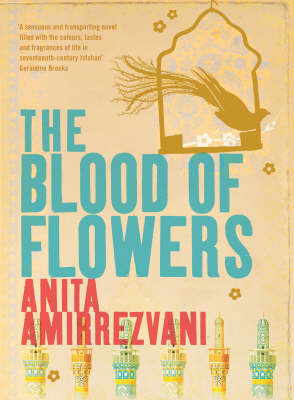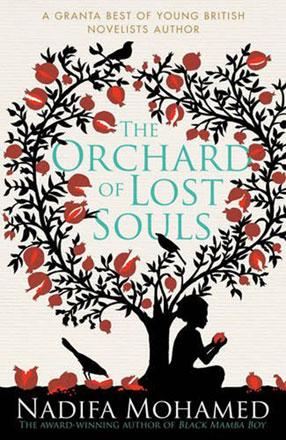You are here
Seeking freedom of choice
By Sally Bland - Jul 20,2014 - Last updated at Jul 20,2014

Americanah
Chimamanda Ngozi Adichie
London: Fourth Estate, 2014
Pp. 477
“Americanah” is the story of Ifemelu who leaves Nigeria for the United States to find better education and career opportunities, yet despite her success chooses in the end to return to her native country.
“Americanah” has all the elements of a good novel: a passionate and ever-evolving love story, an enchanting cast of full-blown characters who keep on growing and adapting, unpredictable situations and evocative descriptions, but it is much more.
It is an eye-opener — a modern-day epic of striving for self-fulfilment against the odds. While tracing Ifemelu’s journey and the discoveries she and other immigrants make along the way, author Chimamanda Ngozi Adichie provides a sharp commentary on class and cultural differences and contemporary racism that overflows the boundaries of fiction into biting social critique, all tempered by mischievous humour.
Ifemelu and Obinze grew up in modest, middle class, educated homes in Lagos in the 1980s and 1990s. They fell in love in secondary school, embarking on a joyful relationship of great physical and intellectual intimacy. Propelled by the economic and educational stagnation pervading Nigeria during the era of military dictatorship, they both dreamed of studying in the US. Ifemelu has the chance to travel first, and it is assumed that Obinze will follow, until post-9/11 restrictions deny him a visa.
In the US, Ifemelu likes being able to recreate herself. After initial hardships and humiliations due to lack of money, she obtains her degree and a good job, enters into exciting relationships, and later launches a highly successful blog. Still, after fifteen years, she realises that “there was cement in her soul.” (p. 6)
Part of her homesickness is missing Obinze with whom she had stopped communicating at a particularly low point. In the meantime, Obinze spends time in the UK, returns to Nigeria, becomes rich, marries and has a child. Despite long separation, they are in comparable mental states, for Obinze “felt a hollow space between himself and the person he was supposed to be... his mind had not changed at the same pace as his life”. (p. 27)
But so much has happened since they last saw each other.
Most of the above can be gleaned from the blurb on the book cover, but what can only be gained from reading the novel in its entirety is Adichie’s astute observations of the world from Lagos to New England. Landscapes, cityscapes, people’s interior spaces, gender dynamics, life’s everyday dramas, and the workings of social mechanisms and hierarchies, like the “American racial ladder” — all are described in incisive prose.
Ifemelu, with her innate honesty and saucy outlook on life, what her father once termed her “natural proclivity towards provocation”, is well suited for voicing Adichie’s ideas, and one imagines that the novel is partially autobiographical. (p. 52)
The now time of the story takes places in a beauty salon; Ifemelu is having her hair braided for her journey home. During this six-hour process, the novel flashes back to Ifemelu’s childhood, youth and early experiences in America, alternating with memories from Obinze’s point-of-view.
The braiding salon is not a randomly chosen setting, for the trials and tribulations of a Black person getting proper hair care and styling in the US serves as a vehicle for Adichie’s exploration of cultural differences and racism, as do food, educational practices, childrearing and a lot of other everyday life issues.
Ifemelu’s biggest discovery is that race, which was not a factor for her growing up in an African country, is a major issue in America, while tribalisms are different than those she left behind in Nigeria. Her experience goads her into starting a blog titled “Raceteenth or Curious Observations by a Non-American Black on the Subject of Blackness in America” with her entries ranging from banal everyday situations to Obama’s election.
Adichie breaks more than the usual amount of stereotypes about the implications of race, and relations between the West and the Third World. This is not a “rags to riches” or “escape to the West” story. The main characters in the novel are not fleeing dire poverty or abuse but rather “the oppressive lethargy of choicelessness”. (p. 276)
This is a new take on the immigrant experience, showing why Nigerians (and, by extension, others) immigrate, but also why they return home, and that the country they return to is not always the one they left. As Ifemelu and Obinze discover, change is happening everywhere in today’s world that is at once very globalised and highly localised.
Sally Bland
Related Articles
The Thing around Your NeckChimamanda Ngozi AdichieNew York: Anchor Books/Random House, 2010Pp.
The Blood of FlowersAnita AmirrezvaniLondon: Headline Publishing Group, 2008Pp.
The Orchard of Lost SoulsNadifa MohamedUK: Simon & Schuster, 2014Pp.



















